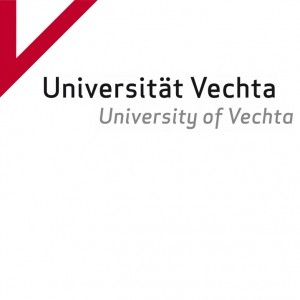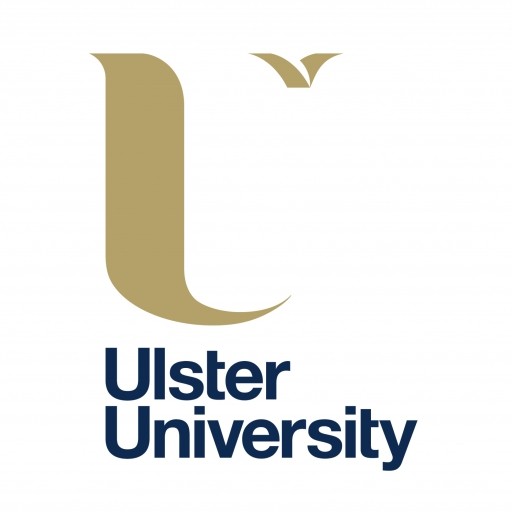Photos of university
Rural Geographies — Change Via Globalization is an interdisciplinary Master’s program offered by the University of Vechta, designed to explore the dynamic interactions between rural spaces and global processes. This program aims to equip students with a comprehensive understanding of the social, economic, cultural, and environmental transformations occurring in rural areas worldwide. Through a combination of theoretical frameworks and practical case studies, students will analyze how globalization influences rural communities, agricultural practices, land use, and regional development. The curriculum emphasizes critical thinking and promotes the development of innovative strategies to address contemporary challenges such as rural depopulation, agri-environmental sustainability, digital transformation, and the revitalization of rural economies.
Students will engage with a variety of academic disciplines including human geography, development studies, environmental science, and socio-economic analysis. The program encourages a comparative approach, examining rural changes across different geographic regions and cultural contexts. Participants will have opportunities to participate in fieldwork, internships, and international exchanges, fostering practical skills and global perspectives essential for careers in development organizations, governmental agencies, research institutes, or NGOs focused on rural development and sustainability.
The teaching staff at the University of Vechta are experienced researchers and practitioners in the field of rural studies, committed to providing a high-quality, research-oriented education. The program's structure combines coursework, seminars, and independent research, culminating in a Master's thesis that addresses relevant issues related to globalization and rural change. Graduates will be prepared to critically assess rural development policies, contribute to sustainable strategies, and work effectively within international and multicultural environments. Overall, Rural Geographies — Change Via Globalization offers a rich academic experience that combines theoretical insights with practical applications, fostering future professionals capable of shaping sustainable rural futures across the globe.
The "Rural Geographies — Change Via Globalization" program at the University of Vechta offers students a comprehensive understanding of rural regions and the dynamics that influence their transformation in a globalized world. This interdisciplinary program explores the complex interactions between local communities, economic processes, environmental factors, and global trends that shape rural areas across the globe. Students are introduced to key concepts in human geography, development studies, and environmental sciences, equipping them with the analytical skills necessary to assess and address the challenges faced by rural communities.
Throughout the program, students examine case studies from diverse geographic regions, analyzing issues such as agricultural development, resource management, land use change, and rural-urban relationships. Emphasis is placed on understanding how globalization impacts rural economies, social structures, and cultural identities, as well as how local populations adapt and respond to these global influences. The curriculum combines theoretical coursework with practical fieldwork, encouraging students to develop proposals for sustainable development and innovative solutions tailored to specific regional contexts.
Students will learn about policies affecting rural areas, the role of technology and infrastructure development, and strategies for promoting social inclusion and environmental sustainability. The program also stresses the importance of interdisciplinary approaches and critical thinking, preparing graduates for careers in research, development agencies, environmental consultancy, and policy-making organizations. By engaging with both academic theories and real-world applications, students will gain a nuanced perspective on how rural geographies are continuously reshaped by the forces of globalization. Overall, the program aims to produce well-rounded professionals who can contribute meaningfully to the sustainable development of rural regions worldwide.
The Rural Geographies — Change Via Globalization program at the University of Vechta is designed to provide students with comprehensive knowledge and practical skills related to rural development, global change, and spatial dynamics. Admission requirements typically include a completed secondary school diploma or an equivalent qualification recognized by the university. Applicants are generally required to demonstrate proficiency in English, usually through standardized tests such as TOEFL or IELTS, reflecting the program's language of instruction. Prior knowledge or coursework in geography, social sciences, or related fields may be advantageous but is not mandatory. The program may also require a letter of motivation or personal statement outlining the applicant's interest in rural geographies and globalization, as well as relevant work or volunteer experience where applicable.
Applicants might need to submit academic transcripts, identification documents, and curriculum vitae as part of the application process. For international students, proof of legal residence and a valid passport are essential. Some programs may also necessitate an interview or additional testing to assess the applicant's suitability for the program. The university encourages candidates from diverse backgrounds to apply, highlighting its commitment to fostering an inclusive academic environment. Financial requirements, such as tuition fees and potential scholarship opportunities, are also relevant, with international students often needing to provide evidence of sufficient funds to cover living expenses.
Furthermore, the program emphasizes the importance of interdisciplinary approaches, critical thinking, and engagement with current global challenges affecting rural areas. Students are expected to participate actively in coursework, seminars, and possibly fieldwork, which may necessitate particular physical or logistical preparations. Overall, the admission process aims to select motivated individuals with a strong interest in understanding and influencing rural transformations driven by globalization processes, ensuring they are well-prepared for the academic challenges and opportunities presented by the program.
The financing for the "Rural Geographies — Change Via Globalization" program at the University of Vechta is primarily supported through a combination of scholarship opportunities, student associations, government funding, and personal investment by the students themselves. The university offers various funding options aimed at both domestic and international students, including state-funded financial aid programs such as the BAföG (Bundesausbildungsförderungsgesetz), which provides grants and loans to eligible students based on their income and family situation. Additionally, the university has partnerships with external foundations and organizations that provide scholarships specifically targeted at students pursuing degrees in social sciences, rural development, and geography.
Students are encouraged to seek external funding sources, such as Erasmus+ programs, which facilitate mobility and exchange opportunities within Europe and often include financial support for living expenses and travel. The cost of studying at the University of Vechta is relatively moderate, especially when compared to larger universities in Germany, making it accessible for many students through part-time work and savings. The university's career services regularly provide guidance on financial planning, scholarship applications, and employment opportunities during and after studies.
International students may also have access to specific scholarships or grants offered by their home countries, as well as funding from cultural and educational exchange programs. The university fosters a supportive environment for students to find financial resources, ensuring that financial barriers do not prevent talented individuals from pursuing the program. Overall, the funding landscape at the University of Vechta emphasizes accessibility, diversity, and equal opportunity, ensuring that students can focus on their academic pursuits in rural geographies and globalization change studies without undue financial hardship.
The program "Rural Geographies — Change Via Globalization" offered by the University of Vechta is an interdisciplinary master's degree focusing on the complex spatial and social transformations occurring in rural areas under the influence of globalization processes. This program aims to equip students with a deep understanding of rural development, environmental challenges, socio-economic changes, and cultural dynamics that characterize rural regions worldwide. Students explore diverse topics such as agricultural transformation, rural-urban linkages, migration patterns, land use, and sustainable development, integrating perspectives from geography, sociology, economics, and environmental sciences. The curriculum emphasizes how global forces—such as international trade, policy shifts, technological advancements, and migration—impact local rural communities, often leading to significant change, adaptation, or resilience.
The program combines theoretical coursework with practical fieldwork, fostering analytical skills and regional knowledge. Students have opportunities to participate in field trips, case studies, and research projects that enhance their understanding of specific rural contexts. The degree prepares graduates for careers in research, policy advising, rural development programs, environmental management, and NGOs working in global development sectors. The program also incorporates innovative teaching methods, including workshops, seminars, and collaborative projects, to promote active learning and critical thinking. Given the international orientation of the program, students from diverse backgrounds and nations can benefit from a rich academic environment that emphasizes cross-cultural understanding and global perspectives on rural change.
Graduates of this program are expected to have a comprehensive grasp of how globalization affects rural landscapes, communities, and economies and to develop strategies for sustainable rural development. They will be capable of analyzing complex issues pertaining to rural transformation and implementing solutions suitable for various contextual challenges. The program duration is typically two years, with a combination of coursework, research, and practical experience. It is designed to meet the demands of a globalized world where rural issues are increasingly interconnected with international processes. The program also encourages interdisciplinary collaboration and emphasizes the importance of local context in addressing global challenges, preparing students for diverse roles within academia, government agencies, international organizations, and the private sector committed to rural and regional development.







